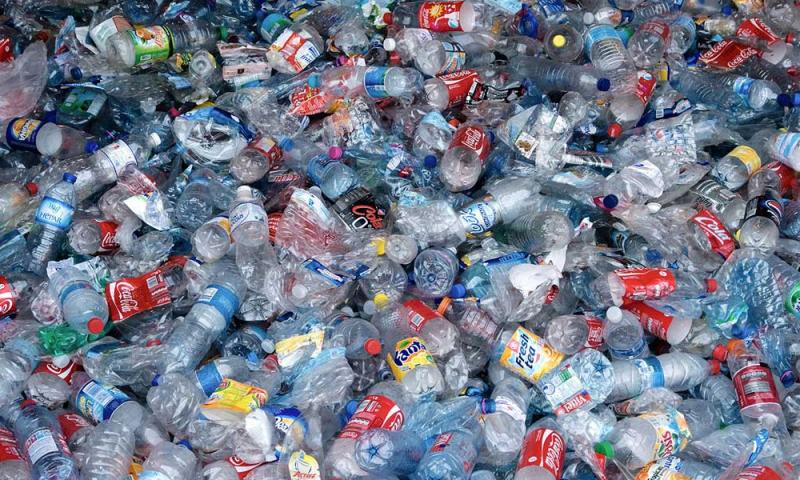LETTER | Reviewing options to end Malaysia's plastic waste
LETTER | Malaysia may not be the biggest economy in terms of output and consumption, but we are among the highest emitters per capita of plastic waste.
In 2019, according to Organisation for Economic Cooperation and Development data, Malaysia is the fifth highest emitter of plastic waste to the ocean per capita - at 2.29kg per person.
In the same year, 73,098 tonnes of plastic waste was emitted, the world’s 3rd highest in absolute tons.
Most of Malaysia’s plastic waste is Imported. The Center to Combat Corruption and Cronyism (C4 Center) in April launched a report highlighting Malaysia’s position as a plastic waste importer - particularly from Japan, with 179 million kg of plastic waste out of 563 million kg exported to Malaysia.
With China banning the import of plastic waste in 2017 as global plastics production is expected to double by 2030 - in five years, the blunt of the waste will be imported to Malaysia.
Plastics are a major component in industrial production - industrial contaminants get mixed up in plastics, making them difficult to process. It is a hard feat to continue production as most outputs rely on these plastics, and instead of reducing it, they prefer to offset it entirely, in the same way as carbon credits - plastic credits.
‘Waste colonialism’
According to Wong Pui Yi from C4 Center, strict environmental laws in other nations prompted other nations to export waste abroad for processing. Malaysia being one of the world’s top importers of plastic waste, coupled with relatively good infrastructure makes it an ideal destination for exporting plastic waste.
This act is called “waste colonialism” as the flows of plastic from first-world developed countries are processed by developing third-world countries. They had to bear the blunt of hazardous waste in its contagious effects on human health and environmental pollution.
Plastic waste is the most visible eyesore of environmental pollution - in areas where plastic is stored unprocessed, these polymers degrade (some even don’t) and seep into the grounds, giving a much breeding opportunity for pests when left unattended.
On the international stage, the end of 2024 is the deadline for the ratification of a legally binding plastics treaty, spearheaded by the United Nations Environment Assembly. Signatories are expected to commit themselves to eliminating plastic pollution.
The presence of lobbyists is one marked by concessions to allow plastics offsetting programmes by plastic credits to be included in the treaty.
Much speculation arises on whether the contents will focus on “cuts to plastic production or focus on recycling, with fossil fuel-producing countries and industries pushing for the latter,” the Financial Times reported.
Over 80 percent of petrochemicals are used for plastics production - cementing further reliance on the oil and gas industries. The petrochemical industry thrives on the abundant demand for plastic - the International Energy Agency (IEA) in 2019 cites the petrochemicals sector as the “single largest contributor” to oil demand growth for the next five years.
Fossil fuel companies are also increasingly moving into petrochemicals for plastic products as their next key sources of revenue, with IEA also forecasting that one-third of fossil fuel demand will be from petrochemicals. Developing countries with increased levels of consumption will be increasingly reliant on petrochemicals.
Because of these contaminants, the “economically sound” issue is burning them to open air using incinerators - substituting plastic pollution for air pollution as these contaminants contained in plastics are being combusted into the air.
Two organisations: Break Free From Plastic and the Global Alliance for Incinerator Alternative. Their joint investigation on the major plastic offsetting platforms, Verra and Plastics Carbon Exchange (PCX) revealed that credits are generated from burning waste rather than being recycled in PCX. Verra only has one plastics credit issuer.
‘Deplastification’
Reduction of plastic production - by reducing itself, shrinks the demand for petrochemicals and is one further connected step for a fossil fuel-free future. Investments in recycling products as well as imposing limits on the volume of plastic as production materials must come hand in hand, and generate a much more efficient rate of disposal without piling quantities
We can only offset plastic to eliminate the plastic excess ingrained in our society. But that should not distract us from attaining a plastic-free society. That would solve the root problem of plastic waste generation.
The World Bank, together with Citi, has embarked on efforts to fund recycling projects, with the launch of a US$100 million (RM468.8 million) bond paid “partly through the sale of plastic and other carbon credits.
Does Malaysia have the financial infrastructure to do so? It is insufficient for a range of financial products to be made and structured around this form of offsetting if we do not have enough data collection methods and transparency.
Waste management disposals and techniques must be set up first and proven reliable if funding projects are to be attractive.
First, there must be a greater scaling of effort involved in incentives towards reducing the volume of plastic in production alongside recycling to curb the increasing piles of waste requiring recycling, consuming much power and effort.
Waste management efforts must then head to “deplastification”: a framework towards a plastic-free future against the predominance of plastic in industrial production and commercial consumption. It involves a total phase-out of plastics in industrial production and a shift to reusable non-contamination materials.
Whereas recycling is a mitigation towards the accumulating pile of waste, our long-term goal of “deplastification” solves the problem at its core, eliminating the resources needed to process recycling if there is a much lesser proportion of generated waste.
As the common saying goes: reducing is much better than recycling.
The views expressed here are those of the author/contributor and do not necessarily represent the views of Malaysiakini.
RM12.50 / month
- Unlimited access to award-winning journalism
- Comment and share your opinions on all our articles
- Gift interesting stories to your friends
- Tax deductable
